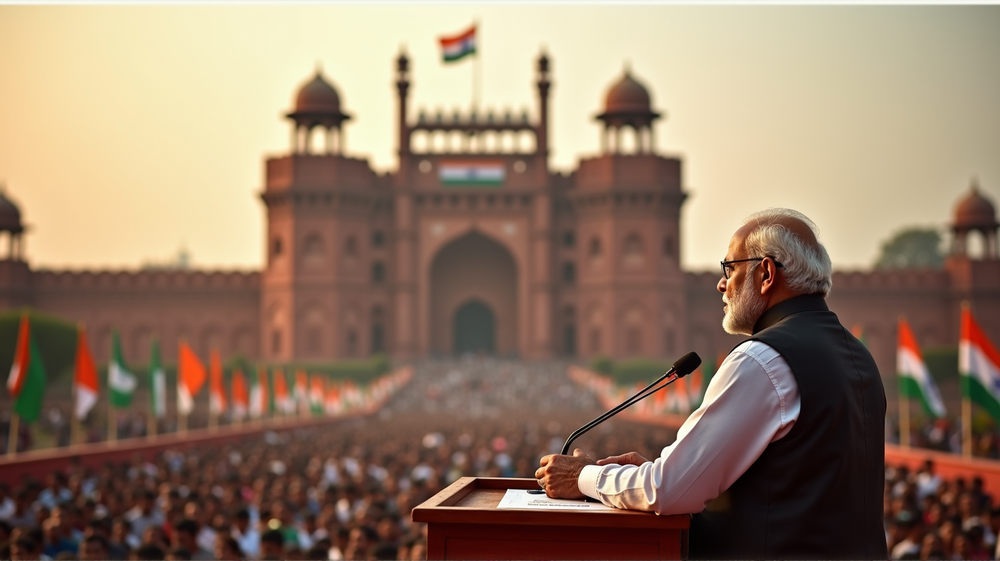In a speech that will undoubtedly be remembered for years to come, Indian Prime Minister Narendra Modi took an unprecedented step in his Independence Day address by publicly acknowledging and lauding the Rashtriya Swayamsevak Sangh (RSS). This move marks a milestone moment, as Modi has never mentioned the RSS in his twelve previous Independence Day addresses.
The Surprising Acknowledgement
Prime Minister Modi referred to the RSS as the “largest NGO in the world,” particularly praising its “100 years of national service” and its instrumental role in nation-building. This acknowledgment comes against a backdrop where the RSS, founded in 1925, has been both revered and criticized for its Hindutva ideology—considered exclusionary by many.
A Deep-Rooted Connection
Modi’s personal history with the RSS adds another layer to the narrative. Joining the RSS in his youth, Modi rose through the ranks, leaving an indelible mark that has carried over into his Bharatiya Janata Party (BJP) leadership. However, this connection with an organization often entangled in controversies regarding religious extremism and violence fuels both loyalty and concern.
A Divisive Narrative
Modi’s comments have sparked a wave of criticism, especially due to the RSS’s limited role in the actual Indian independence movement and its controversial history. Critics point out sectarian implications, amid escalating violence against minorities, particularly Muslims, under Modi’s governance.
Looking Toward the Future
While the Prime Minister’s acknowledgment may have caused ripples internally and externally, it also coexists with his ambitious plans for India’s future. During the same address, Modi unveiled a new “Sudarshan Chakra” air defense system, evocatively dubbed India’s “Iron Dome” as it promises to enhance national security.
Global Diplomacy Shifts
The RSS is set to celebrate its centenary with global diplomacy in play, notably excluding invitations to neighbors Pakistan, Bangladesh, and Turkey. This decision is aligned with recent intensifications of India-Israel defense partnerships, marking a strategic shift in alliances and reinforcing India’s emerging geopolitical stance.
The Road Ahead
Modi’s recognition of the RSS opens a new chapter in India’s contemporary narrative, blending historic ties with future aspirations. As India stands at a crossroads, the implications of this speech will resonate within the political and social fabric, challenging conversations around national identity and unity.
According to www.middleeasteye.net, Modi’s remarks highlight the delicate balance of trying to honor tradition while navigating the complex realities of modern global relations.












